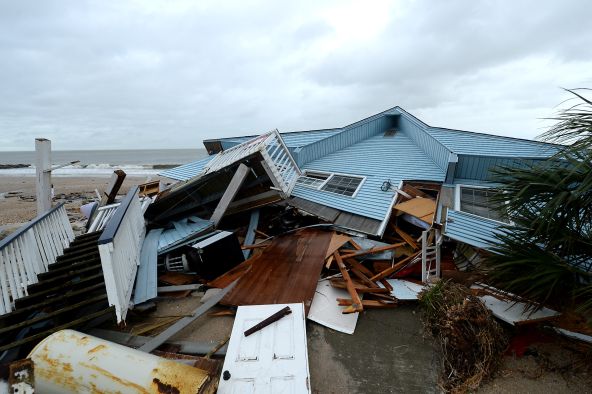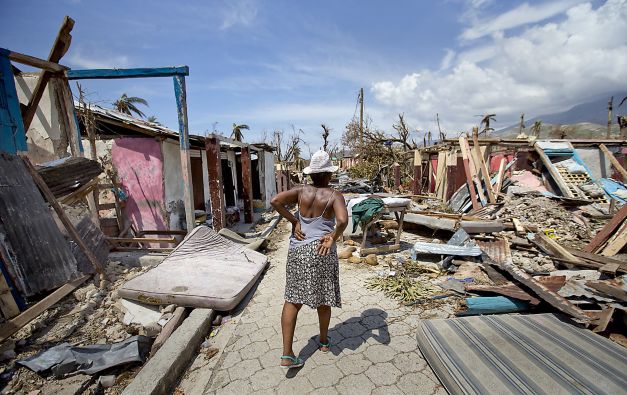
This past week, an undeniably powerful hurricane ripped through parts of the western hemisphere. Hurricane Matthew officially became a hurricane on Sept. 29 and first made landfall in Haiti as a category four storm on Oct. 4, according to the Weather Channel.
The storm was declared post-tropical on Oct. 9 and, of course, has been covered immensely by the major media channels. A simple Google search of “Hurricane Matthew” brings up over 100 million results.
The media coverage was in-depth, timely and completely biased towards the United States. Top articles include, “U.S. Death Toll From Hurricane Matthew Rises to 19 Across Four States” from NBC News, “Matthew Downgraded to Post-Tropical Cyclone and Heads out to Atlantic, US Death Toll Rises to 19” by ABC News, “Hurricane Matthew Toll Climbs to at Least 17 as
North Carolina Suffers Record-Breaking Flooding” by the New York Times, shall I continue?
Now, looking at the worldview, Reuters reported the death toll from Hurricane Matthew to now be over 1,000 in Haiti. This means the hurricane caused more than 50 times the deaths in Haiti than in the United States. So, why is the media not talking about Haiti?

As hundreds of people were dying in Haiti, the media focused on coverage of the evacuation of Florida. Now, as the hurricane coverage ends, headlines include the U.S. death toll and not much else. Are the lives of those in Haiti really that much less important than those in the United States?
It is the duty of news outlets to cover what matters, to show the community what they need to know. In the instance of Hurricane Matthew coverage, the media has failed.
Pew Research Center released a study in 2015 about how Americans describe themselves. The top three words they found to be most accurate: patriotic, honest and selfish. This is not coming from other countries, over two-thirds of these American participants described Americans as selfish.
This does not have to be true, and there are many Americans who are not at all selfish.
However, how can they care about something they do not know about? If the media is going to selfishly only report on the deaths in the United States, why would readers have any different mindset?
Sometimes better sources of information come by stepping away from mainstream media to hear from sources on the ground.
An excellent source of information about what is happening in Haiti from those right on the ground comes from Catholic Relief Services. Cabrini University has a special partnership with CRS for more than 12 years. CRS has worked in Haiti for decades, through the 2010 earthquake, and is present now. You can support the work of Haitians recovering from this tragedy and learn more at its website and on social media.
Citizens in the United States need to be properly informed about what is happening around the world, not just what is personally affecting their own lives and surrounding areas. Until the media rightfully provides them with a world outlook, citizens will continue to be as selfish as we let them.



